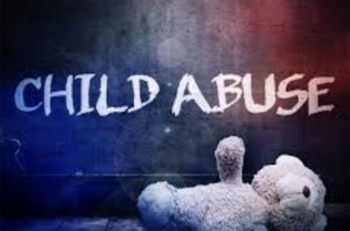American churches continue to struggle with the ramifications of sexual abuse within their congregations. It was reported that, over a span of two decades, three faith-based insurance companies collectively reported 7,095 such claims in U.S. churches. The companies say that on average 260 of these reports each year involved minors.
congregations. It was reported that, over a span of two decades, three faith-based insurance companies collectively reported 7,095 such claims in U.S. churches. The companies say that on average 260 of these reports each year involved minors.
According to Telios Law, PLLC, Founder Theresa Lynn Sidebotham, “For abuse to happen, three factors must be present. First, there must be a perpetrator who desires to abuse. Second, there must be a child who is vulnerable to becoming a victim. Third, there must be an environment that fails to protect the child so the perpetrator can act.”
Sidebotham has been practicing law for nearly 20 years and is an expert in conducting investigations into potential misconduct. Sidebotham’s latest book, “Handling Allegations in a Ministry,” is an invaluable resource for non-profits seeking to prepare for and address charges of abuse. In it, she shares that churches can best address abuse in their ministries by proactively taking preventative measures.
First, ministries should enforce stringent background checks and accountability policies.
Sidebotham observed, “Good screening and accountability may keep the would-be perpetrator out of the organization.”
However, Sidebotham noted, “Keeping perpetrators out of the organization is the step least likely to succeed, and the reason we can’t get the child sexual abuse rate down to zero.”
Considering this, it’s vital to help children understand and learn how to establish personal boundaries.
Sidebotham said, “Perpetrators look for vulnerable children, so helping children not to be vulnerable is a healthy step. If children are taught good boundaries and what behavior is appropriate, they may have the power to refuse to take the victim role. This is why adults should focus on providing training and making sure that a child always has someone to tell and viable options for staying safe.”
Finally, ministries must address and remove any environment of secrecy that both enables and encourages such abuse.
Sidebotham stated, “Good policies about the ways in which children are cared for will help eliminate an environment of secrecy that allows perpetrators access to victims. If the entire community understands warning signs and suspicious behavior and is trained to intervene when there are red flags, it may short-circuit abuse. This is the reason to put the entire community through the training — so that aberrations stand out.”
To prepare for these types of situations, Telios Teaches is an affiliated entity that educates and prepares ministries. Telios Teaches offers concise, values-based training from an Imago Deo (image of God) perspective. Telios Teaches provides helpful resources, training, and solutions that line up with God’s calling for ministries and their leaders.
For more information on Telios Law, visit www.telioslaw.com or follow Telios Law on Facebook.



